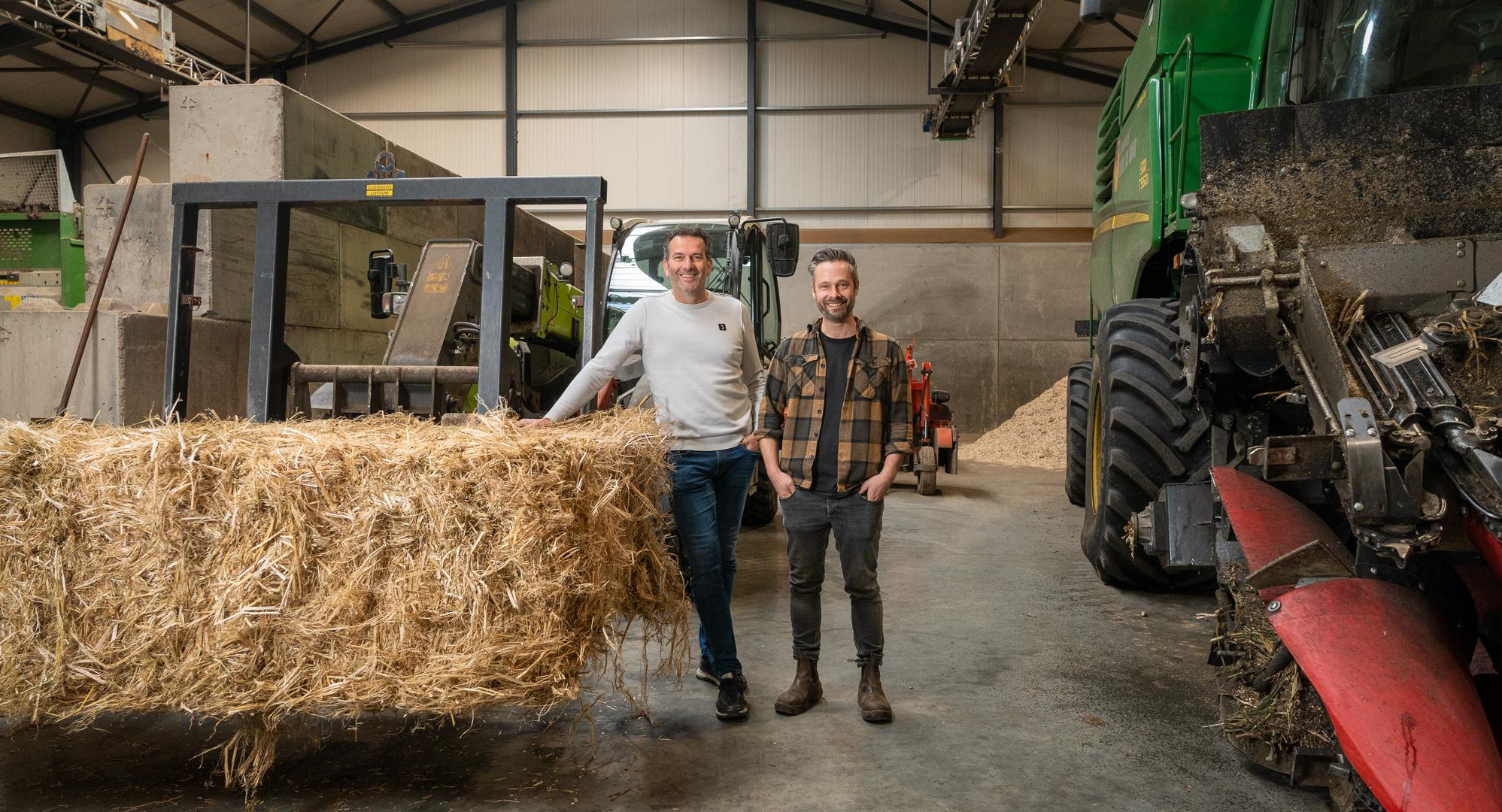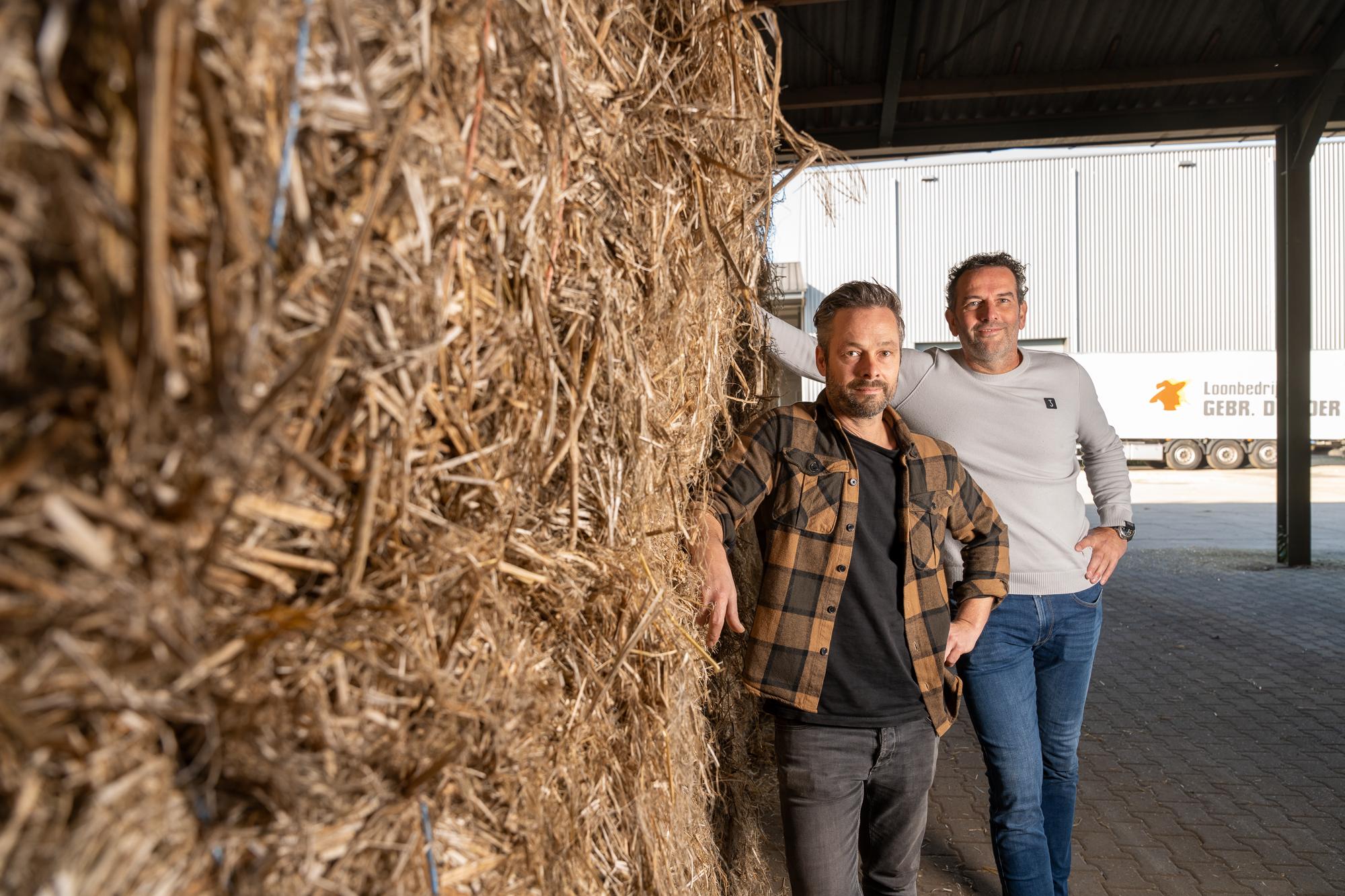In northern Limburg, Ronald Hoex of Hoex Bouw and Rob de Boer of Loonbedrijf Gebr. De Boer are working on a special project: a regional chain for fiber hemp. Their goal? To develop biobased building materials that make the construction sector more sustainable while giving a new impetus to agriculture. ShiftLimburg spoke to these two entrepreneurs in an inspiring interview.

The idea to establish a hemp chain that reaches from "Land to Property" stems from a complex sustainability challenge: The Netherlands must build and insulate a large number of homes before 2030 to meet climate goals. Meanwhile, agriculture faces another challenge: extensification, with reduced nitrogen emissions and improved soil quality. Fiber hemp appears to have the potential to make a significant contribution to both issues.
How did you come into contact with each other?
Ronald: "Actually, it was a chance meeting. After a fire at Rob's farm, he came to us for rebuilding. At that time he was already working with rapeseed and fiber hemp and had machinery for processing these crops. At Hoex Bouw we were using Frinsu's insulation mortar at the time, but we wanted to focus more on bio-based insulation. I immediately thought of Rob and decided to approach him."
Rob: "Absolutely right! We struck up a conversation and found that our ambitions matched up nicely. We were already growing hemp and Ronald was looking for ways to make bio-based insulation material. This created an interaction where we could combine our ideas."
What makes working with fiber hemp so interesting to you?
Ronald: "Hemp has a lot of potential. It is suitable for insulation and has an incredibly strong fiber. In addition, hemp absorbs a lot of CO₂ during growth, which makes it interesting for the construction industry, which emits a lot of CO₂. We use the inner part of the stem, the hemp wood, for insulation. The wood has a high thermal mass, which means it can store heat well and release it slowly. This provides a more stable indoor temperature, keeping the home cooler for longer in the summer. In addition, hemp wood improves acoustics, and the building system we use for this is vapor-permeable, which contributes to a healthier indoor environment."
Rob: "Hemp also offers agricultural benefits. It is a deep-rooting crop that improves soil structure and keeps the soil fertile. Moreover, hemp can be grown without the use of pesticides and is ready for harvest as early as August. Farmers can use it as a resting crop in their cropping plan, which makes hemp both economically and ecologically interesting."
How is the project progressing so far? Are there any results yet?
Ronald: "We have already made considerable strides. We started processing on a small scale, separating the fibers from the wood. Besides wood, the fibers also have valuable applications, such as replacing microplastics or as a raw material for textiles. There are even clothes being made from hemp fibers. The process is still in its infancy, but we are already seeing how well this material works."
Rob: "The project has indeed taken off well. We notice that there is more and more demand for biobased materials. "The Netherlands used to be a leader in hemp cultivation, especially in the days when hemp fibers were used for sails and fishing nets. With the rise of plastic, that disappeared, but now it is getting reappraisal."

What challenges do you see, now and later?
Rob: What we need now is a local processing facility. Right now we have to transport the material to the northern Netherlands for processing, which involves a lot of transportation costs. A local plant would make the process more sustainable and efficient, but also take the hemp chain to the next level. That's where we want to go."
Ronald: "The biggest challenge is indeed scaling up. The demand for hemp products is rising rapidly, and if we want to plant more acres, we will also have to invest in larger processing facilities. That requires partners and financing. At the same time, I see a lot of potential. Hemp has proven to be valuable for construction, especially given the construction industry's ambitions to become more sustainable."
Rob: "And for the agricultural sector, hemp offers a profitable alternative for farmers looking at more sustainable operations."
How do you see the future of this chain in northern Limburg?
Ronald: "We believe that fiber hemp will play an important role in making the construction sector more sustainable. If we can centralize production and processing in northern Limburg, a sustainable chain from 'Land to Property' can be created. That would not only be good for the economy here, but also for the environment."
Rob said, "I am convinced that this will provide new opportunities for the agricultural and construction sectors. Fiber hemp is the crop of the future. We are at the beginning, but with the support of partners like Cooperative Carnola, SAM Panels and HempFlax, we are working step by step towards a strong fiber hemp chain. This way we are laying a solid foundation for a circular building economy in the region. It is an intensive process, but we are excited about what we have already achieved and the opportunities that still lie ahead."
What is LIOF's role in this project?
Rob: "LIOF is an important pillar of support for us. Sjaak Berden guided us from the beginning and helped us well on our way. He understands our ambition and motivates us to realize it locally."
.Ronald: "LIOF not only provides a subsidy, but also actively thinks along about the next steps through the program Impuls Biocircular Economy Limburg. Partners such as Building Balance and Platform Nieuwe Teelten are also involved. That goes beyond financial support; they are really helping us to make this chain a success."